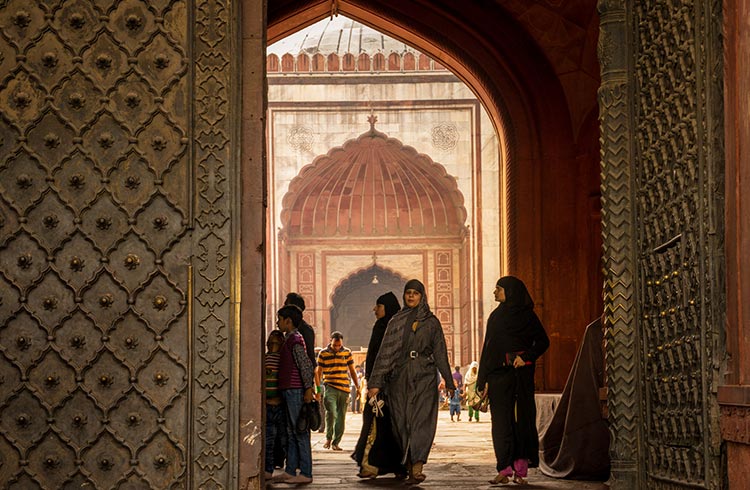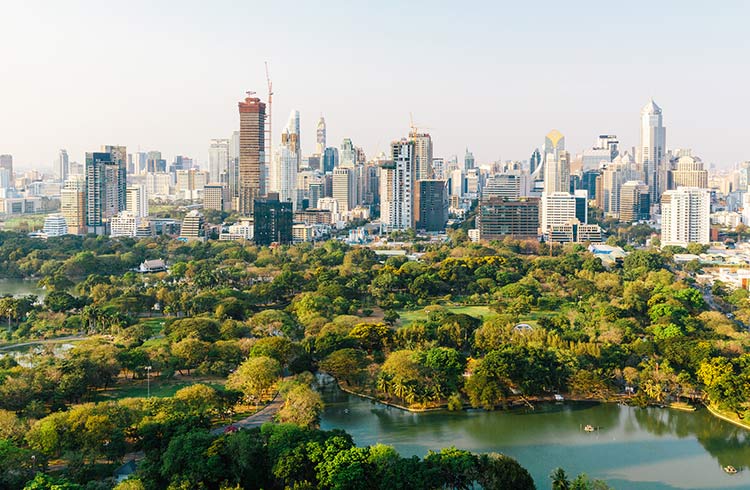Respectful Travel: How to Visit Sites of Significance
Explore important religious, cultural and historic places and events without offending the locals.
 Photo © Getty Images / Pintai Suchachaisri
Photo © Getty Images / Pintai Suchachaisri
We all want to have authentic experiences when we travel, and visiting culturally significant sites can be one way to gain deeper insights into a people's beliefs and traditions. It can sometimes be difficult to know how to be culturally sensitive, but with the right approach, everyone can become a more respectful traveler.
Through their eyes
When you travel, you’re effectively visiting someone else’s home. Just as you appreciate guests being mindful of how you do things at your house, the same is true when you visit countries with cultures that differ from your own. It pays to observe and listen first and then adapt, no matter what you’re accustomed to doing back home.
Hossam Moussa, a former guide for Intrepid Travel in Egypt, says: "It doesn’t matter what you think is right or wrong. It’s about their traditions, culture and what is okay from their perspective.”
Moussa suggests travelers change their mindset and travel with a sense of wonder, looking at everything as if it were new.
"Be ready to get out of your comfort zone and expand your personal horizons a little," he says. "Think of your destination as a place full of mystery waiting for you to explore. Think from their perspective, not yours. Just appreciate their knowledge and share some of yours. You are a mystery to them just as much as they are a mystery to you."
Respect often fosters respect in return and will help you connect with locals in a meaningful way. When locals understand by your actions that you mean well and are trying to understand cultural norms, they will often open up and help you or even show you insights into their lives.
Tolerant travel
Do some research ahead of your departure, especially if you’re not joining an organized tour. Learn about the sites, rituals and festivals you want to see – some can be confronting, so be realistic about what you may or may not be able to cope with.
World Expeditions' responsible travel manager Donna Lawrence recommends that travelers consider the kinds of cultural challenges they could encounter before departing.
“We use the term ‘thoughtful travel’ because we believe that to travel responsibly requires all travelers to think before they act. Sometimes what is perfectly acceptable in our culture can be highly offensive in others," she says.
Consider asking a local tour guide to explain what you should (and shouldn't) do, and why. If you don't agree with the advice or can't accept what the locals do, it may be best to simply not visit.
Once on the road, keep an open mind and take the time to understand the culture of the place you’re visiting. This may mean spending longer in one place than you’d planned, wandering off the beaten track, and engaging with people you meet. Sharing a moment with a local is likely to be far more memorable than taking photos of them from afar.
GeoEx director of global sales Jennine Cohen says not being judgmental is difficult in daily life, let alone in a new country. She tries to empty her mind and not let preconceived ideas cloud what she's seeing, hearing and feeling.
"I try to deeply listen to what the locals are telling me as opposed to trying to compare or think how it reminds me of something else," Cohen says. "One way to help do this is to ask open-ended questions. If people feel like they are being heard, it’s amazing what people will tell you and what insights you’ll get into their culture.”
Religious sites and festivals
Many of the world's most famous monuments and sites have profound religious and cultural significance. Remember that temples, churches, mosques and synagogues are for the believers of these faiths and religions, first and foremost. Tourists who visit them are guests. Find out as much as you can about the rules to follow before visiting to avoid unwittingly offending someone or accidentally being disruptive.
It should go without saying that eating and drinking in and around religious and historic sites is disrespectful, and responsible travelers will have already researched whether they need to cover their arms and legs at religious sites – a common practice in Muslim countries. But be sure to take the time to dive a little deeper into the culture of the country you’re visiting to avoid causing offense.
Body language can be especially problematic. Sitting with your feet pointed at someone in Southeast Asia is a no-no, while in other countries sitting cross-legged or showing the soles of your feet or shoes is considered an affront.
Gender norms can also be tricky to navigate. In some countries, it’s common to segregate males and females at some religious sites, and clothing requirements may vary between the sexes. Follow their lead, imitate how they dress and go where they go – without internal judgment if you can.
Rituals and ceremonies
As hard as it can be to accept, many customs and rituals are off-limits to travelers – or should be – without special permission and only under strict conditions.
Ceremonies related to birth, initiation or coming of age, marriage and religious rituals are all culturally significant events. Initiation ceremonies in indigenous societies in Australia and amongst the Xhosa in Eastern Cape, South Africa, for instance, are often secret and considered sacred. If you’re lucky enough to be invited to attend any kind of sacred ceremony, listening with care to what your host advises you on local customs and protocol will allow you to blend in.
Especially sensitive are rituals to do with death.
The Towers of Silence are sites where Zoroastrians leave human corpses to be eaten by vultures and decompose in the open air. Among the most well-known are those found in Yazd, Iran, and Mumbai, India.
Buddhist sky rituals are ceremonies for the recently deceased and also involve leaving human remains for birds of prey to scavenge. Unfortunately, travelers have been seeking out sky rituals in Tibet in recent years, turning a long-held tradition into a spectacle to be shared online.
In Varanasi, two famous ghats (sets of riverside steps) have been used as cremation sites for centuries, and around 100 bodies are still cremated there today. Varanasi is one of the holiest cities in India. At these sites, it’s best to simply keep a respectful distance and simply observe rather than take photos.
Immersing yourself in a new culture is often an exhilarating – and sometimes challenging – experience. Slow down, be curious and deeply listen without judgment. Err on the side of caution if you are worried about causing offense. And, if you’re still concerned you might be doing something wrong, a warm and apologetic smile could go a long way.
Related articles
Simple and flexible travel insurance
You can buy at home or while traveling, and claim online from anywhere in the world. With 150+ adventure activities covered and 24/7 emergency assistance.
Get a quote


No Comments